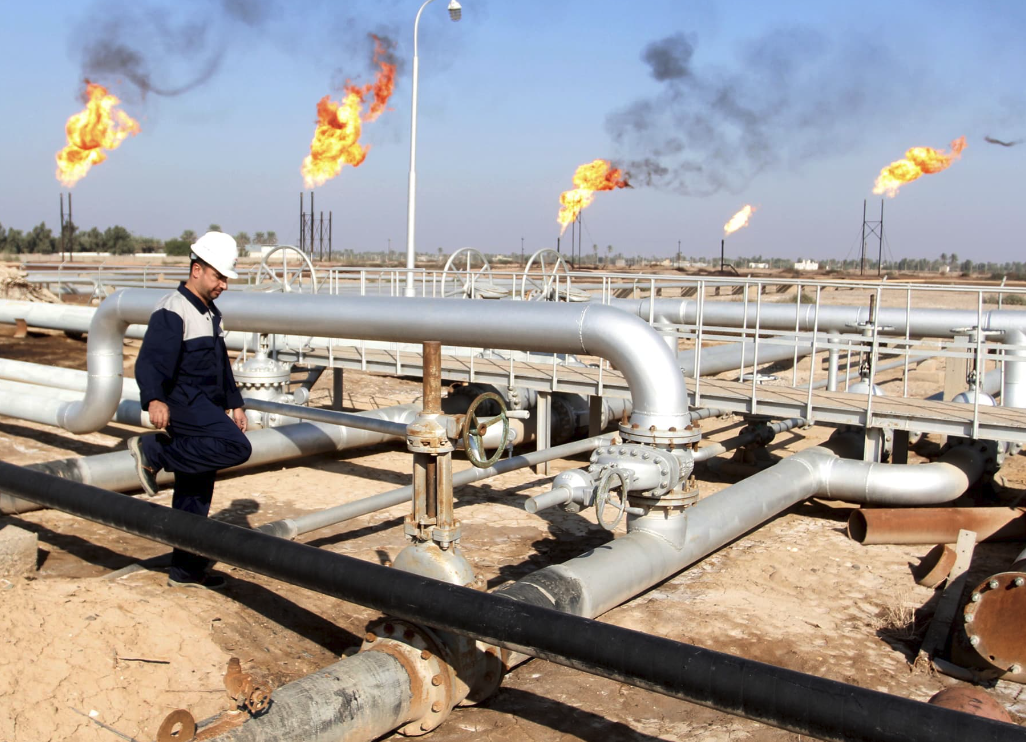Oil flows to Turkey remain frozen following the agreement between Iraq and the Kurdistan Regional Government. The impasse could hurt the autonomous region’s oil sector and revenue. By Adam Lucente in Al-Monitor on15 avril 2023.
The flow of oil from the Kurdistan Region of Iraq to Turkey remains halted amid a dispute between the Kurdistan Regional Government (KRG), the Iraqi federal government, and the Turkish government. One oil sector employee told Al-Monitor on Friday that a continued lapse in oil exports will significantly hurt the Kurdistan Region’s energy sector.
Background: In March, the Paris-based International Chamber of Commerce ruled in Iraq’s favor in its case against the Kurdistan Region exporting oil to Turkey. Per the ruling, Ankara was to pay Baghdad $1.5 billion for allowing unauthorized exports from 2014-2018. Turkey stopped the oil exports from the Kurdistan Region following news of the court ruling. In normal times, 450,000 barrels per day are exported from the Kurdistan Region into Turkey’s Ceyhan port. The federal Iraqi government also exports 70,000 barrels of oil per day to Turkey through Ceyhan.
Baghdad has sought greater control over the region’s energy industry for years, and in the past accused the KRG of not turning over oil in exchange for its share of the federal budget. Last year, the federal Iraqi Supreme Court ruled that the KRG’s legal basis for the exports was unconstitutional. The KRG, which developed a thriving energy sector independent of Baghdad following the 2003 US invasion, immediately disputed the ruling.
On April 4, the KRG announced that it reached an oil deal with the Iraqi federal government. The deal stipulated that Iraq’s state oil firm, SOMO, would be able to market the Kurdistan Region’s oil.
Oil exports were expected to resume following the agreement, but have yet to do so. Reuters reported on Friday that pipeline operators have yet to receive orders to restart flows. Iraq has also not asked Turkey to resume the flows, according to the outlet.
A KRG spokesperson told Al-Monitor on Friday that there have been no updates from Turkey on the issue.
Why it matters: The stoppage of oil exports could significantly damage the Kurdistan Region’s oil sector. One employee of a local oil company told Al-Monitor, “Oil fields will continually decline if not drilled constantly, thus production will be dropping even further, creating even less future revenue which is needed to drill more. It’s not good if they don’t start production soon.”
The employee, who asked to remain anonymous, added, “I am sure that if the KRG cannot offload the oil they produce then there will be penalties for the KRG.”
Relatedly, some oil companies stopped operations in the Kurdistan Region last month in response to the court ruling.
The KRG is also dependent on oil sales for its revenue. One analyst told the Kurdish Iraqi news outlet Rudaw last month that the stoppage of oil exports will have a “huge impact” on the region’s economy.
The KRG has failed to pay its employees in the recent past, and a decrease in revenue could result in unrest. In 2020, teachers protested in the Kurdistan Region against delayed salary payments. The KRG’s crackdown against the protests was widely criticized by rights watchdogs.
Know more: Why Turkey is not allowing the oil exports to resume is unclear. Speaking to Amberin Zaman for Al-Monitor’s On the Middle East podcast earlier this week, Iraq expert Bilal Wahab said that Turkey is shutting down the oil in order to gain leverage. Turkey specifically seeks pledges from Baghdad that it will not seek further compensation for accepting the Kurdistan Region’s oil during periods not covered by the court ruling. Turkey also wanted to force Baghdad and the KRG to enter into an agreement on their oil dispute so as to avoid further troubles, according to Wahab.

